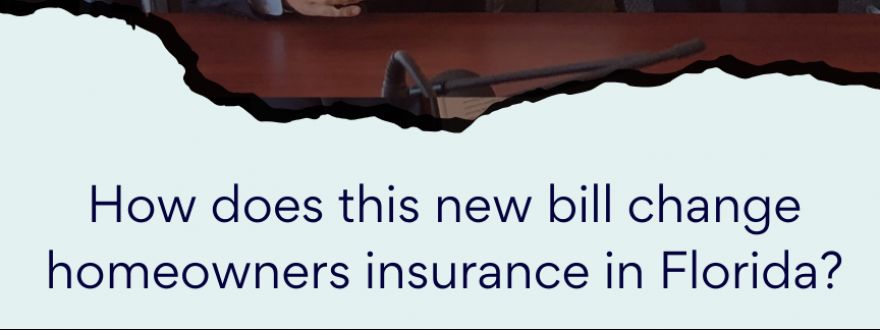
Today Governor Ron Desantis signed into law (effective July 1st, 2021) Senate Bill 76 (SB76), making several substantial changes to the Florida property insurance market. Almost everyone agrees that drastic changes were needed after Florida property insurers, mostly those specializing in homeowners insurance products, lost more than $1.5 billion last year alone.
Many point to out-of-control litigation costs in the state as the reason some insurers could be on the brink of insolvency. Florida has 76% of all lawsuits regarding property insurance in the nation, but only 8% of the property claims. Many carriers stated on record that their first notice of loss is commonly from a law firm and not their insured. These seem to indicate litigation as the first response to a loss which is very cost-prohibitive.
The lawmakers must have agreed because the changes to the way the insureds and carriers address their disputes were clearly the focus of this bill. Particularly, there were ideas discussed in SB 76 that would help reduce the number of lawsuits filed in the state by restricting some third parties from entering the claims process. The House of Representatives ultimately removed some of the more significant changes to how the state deals with property insurance litigation.
The following are critical changes the bill included that might reduce the number of lawsuits in the state of Florida and, in turn, help to slow the meteoric rise of property insurance premiums:
- One-way party fees - Before the law, lawyers could be awarded large attorney fees for minor disputes in the amount the insurance company pays to settle a claim. The insurance company was typically required to pay both parties attorney fees, which is not the case elsewhere in the country. Because of this, there was a financial incentive to pursue legal action over small sums of money with little risk involved. This has been changed to award attorney fees to the other party (in full or in part) when the disputes are more than 20%.
- Roofers soliciting - Before the law, one roofing contractor could go door to door, visit every home in a subdivision, giving free roofing estimates, promising gift cards or other prizes, and then suing the insurance companies to replace those roofs. This new law prohibits roofers from soliciting in person or giving anything of value for roof replacement. It also restricts them from giving insurance policy assistance or getting involved in setting up or processing insurance claims.
- Public adjusters soliciting - These are 3rd party insurance claim adjusters that typically act on the insured's behalf. The new bill restricts them, much like roofers, from soliciting in person or offering incentives.
- Documentation of insurance carriers - Beginning January 1st, 2022, the state will require insurance carriers to name the law firms and attorneys involved in property insurance litigation and calculate the fees that they charge. This will provide the state with a much clearer picture of exactly where the problems are and how litigation affects insurance costs.
It does not appear that these changes are enough to have a substantial impact on the rising costs insured are experiencing. However, this bill will likely help slow down the growth of claim costs in Florida, which will help some carriers stay afloat until better options are determined. Not included were the much-publicized provisions that change how roof claims are paid or the bonus fee multipliers lawyers get paid regarding insurance claims. I expect that the Florida legislature will likely revisit both measures next year.
If you have any questions or would like to discuss this bill further, I would love to hear from you!
Trey Sinclair
(904) 259-6296
trey@wellsmac.com







